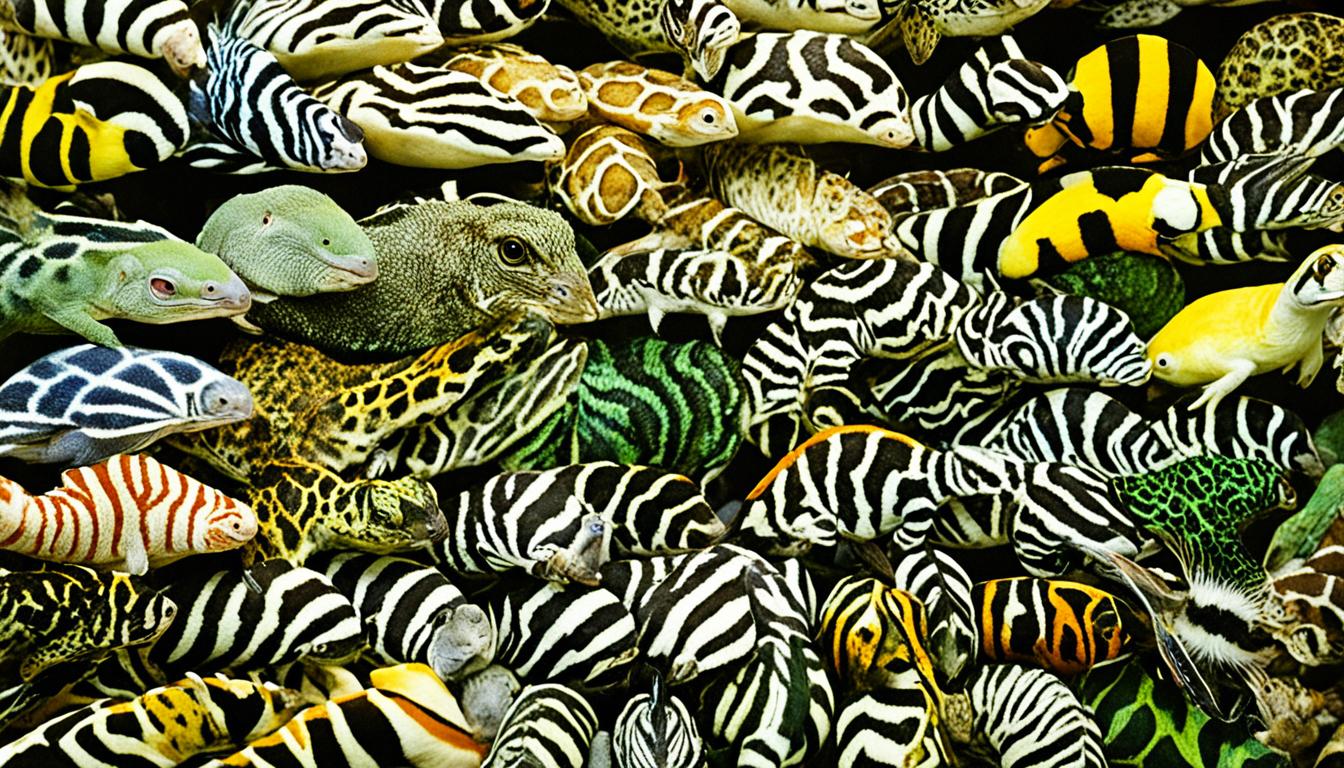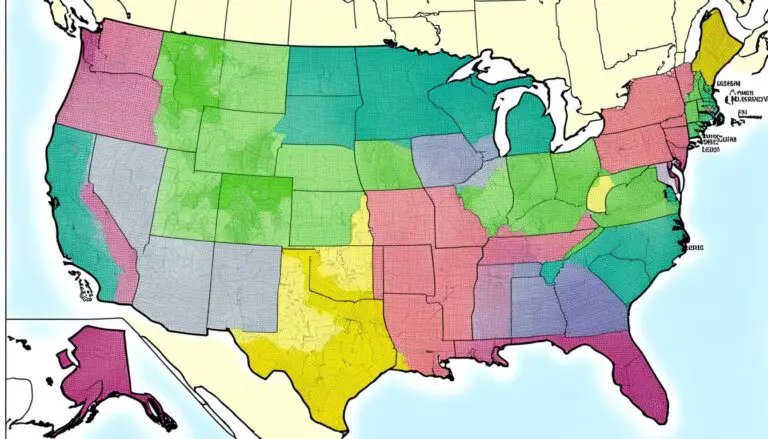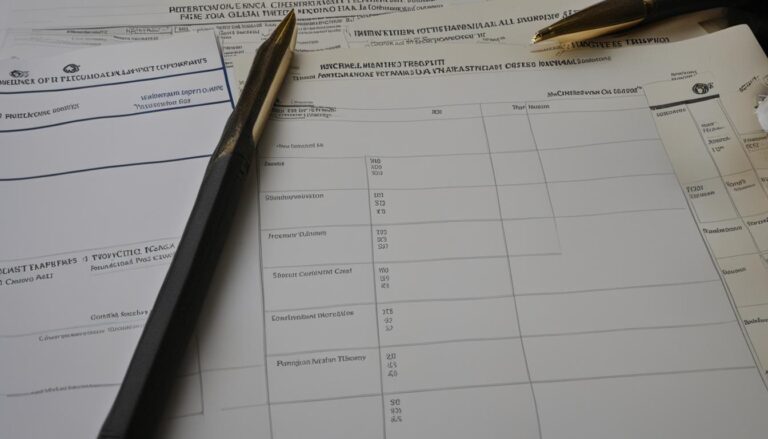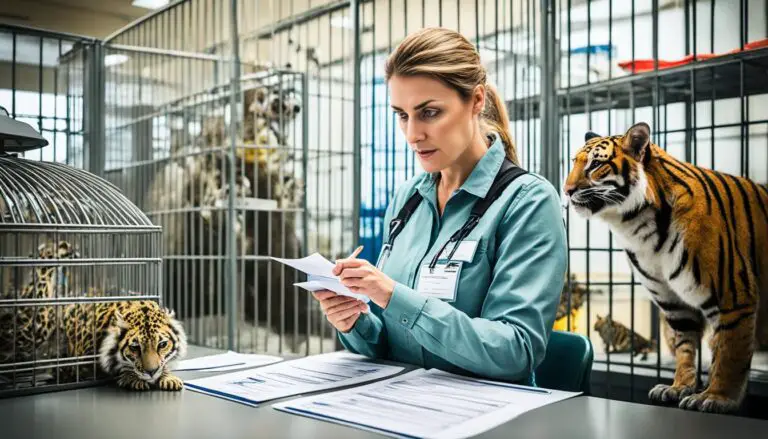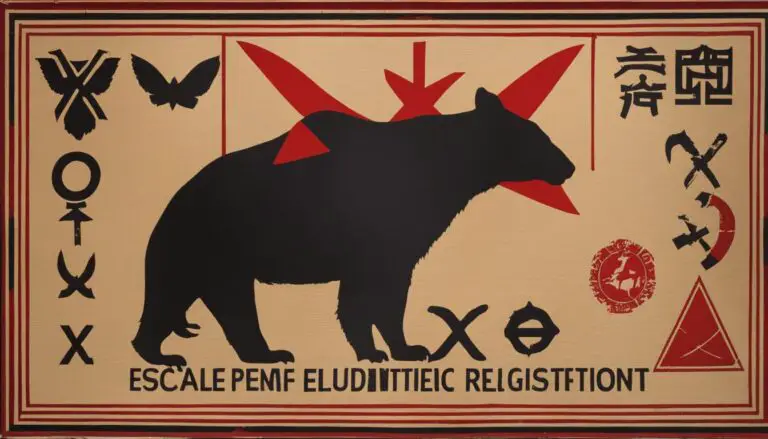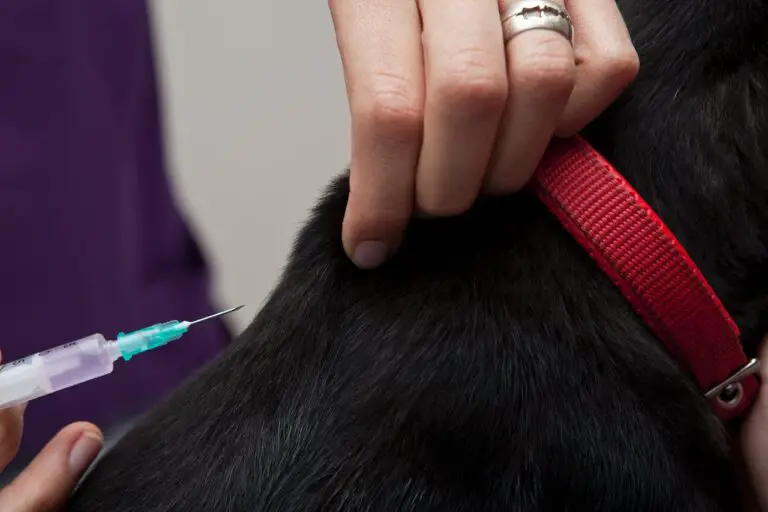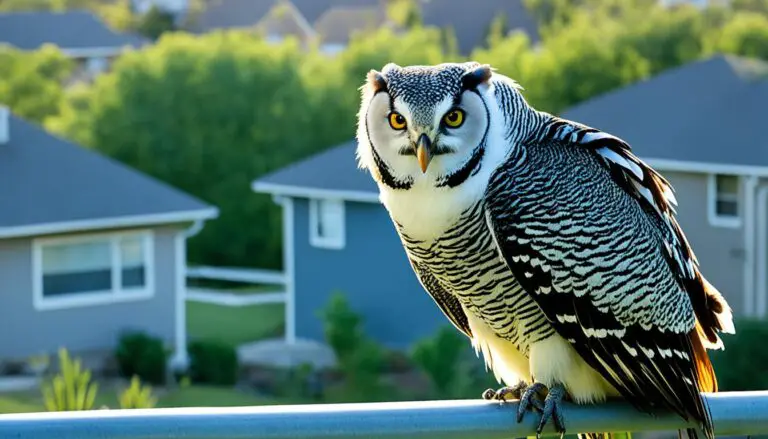Legal Exotic Pets in the US: Know the Law
Are you considering owning an exotic pet in the US? Before you dive into the world of unique and fascinating animals, it’s crucial to understand the legal requirements and restrictions surrounding exotic pet ownership.
Exotic pet laws in the United States are regulated at the federal, state, and local levels. These laws can vary from community to community and depend on the type of animal you wish to own. It’s essential to stay informed and comply with these laws to ensure the well-being of both the animal and yourself as a responsible owner.
Whether you dream of owning an exotic bird, a reptile, or a small mammal, it’s vital to know the rules and regulations that apply to your desired pet species. This knowledge will help you navigate the process of acquiring the necessary permits or licenses, ensuring you are within the boundaries of the law.
Key Takeaways:
- Federal, state, and local laws regulate the sale and possession of exotic pets in the US.
- Exotic pet laws vary across states, with some having comprehensive bans on certain species and others requiring permits or licenses.
- Before considering owning an exotic pet, research the specific regulations in your state to ensure compliance.
- Consult with local authorities or animal control agencies for guidance on exotic pet ownership requirements.
- Stay informed about any changes or updates to exotic pet laws to ensure you remain in compliance with the regulations.
Summary of State Laws Relating to Private Possession of Exotic Animals
Each state in the United States has its own laws and regulations regarding the private possession of exotic animals. These laws can vary greatly from state to state, with some states implementing comprehensive bans on certain species, while others may require permits or licenses for ownership.
It is crucial for prospective exotic pet owners to familiarize themselves with the specific regulations in their particular state before considering the acquisition of an exotic animal. This ensures compliance with the law and promotes the well-being and safety of both the owner and the animal.
“Understanding the state laws is essential to ensure legal and responsible ownership of exotic animals. It is important to research and follow the specific regulations in your state to avoid potential fines, legal issues, and harm to both the animal and yourself.”
Some states have comprehensive bans on the possession of certain exotic species, including large cats, primates, and venomous reptiles. These bans are typically in place to protect public safety and prevent the introduction of invasive species that can disrupt local ecosystems.
Other states may have a system of permits or licenses to regulate the private ownership of exotic animals. These permits often require proof of proper enclosures, regular veterinary care, and adherence to strict safety protocols. Permit requirements may also vary based on the specific species of exotic animal.
It is crucial to note that even if your state allows the private possession of exotic animals, there may still be restrictions and regulations in place concerning animal welfare, transportation, and public interaction. It is essential to abide by these additional requirements to ensure the well-being of the animal and maintain a responsible approach to ownership.
State laws relating to private possession of exotic animals may include:
- Bans on specific species
- Permit or licensing requirements
- Animal welfare regulations
- Transportation regulations
- Public interaction guidelines
| State | Private Possession Laws |
|---|---|
| Alabama | No specific requirements for owning exotic animals such as lions, tigers, and monkeys. Restrictions on certain fish and animals including mongoose, deer, coyote, and wild rodents. |
| Alaska | Illegal to possess, sell, import, or export most species of bird, mammal, or reptile, except for domestic birds and mammals. Permits may be obtained for scientific, educational, propagative, and public safety purposes. |
| Arizona | Restricted wildlife species require special permits for private possession, including non-human primates, venomous reptiles, and certain mammals. Permits issued for specific purposes such as education or wildlife management. |
| Arkansas | Illegal to own large carnivores such as lions, tigers, and bears. Restrictions on bobcats, coyotes, deer, foxes, raccoons, and other animals. Some venomous reptiles may be owned with permits. |
| California | Comprehensive bans on the ownership of most wild animals, including seals, elephants, large cats, and reptiles. Restrictions on owning ferrets, primates, hedgehogs, and other animals. Certain hybrids and domesticated species may be allowed. |
Alabama Exotic Pet Laws
When it comes to owning exotic animals in Alabama, there are no specific requirements for popular choices like lions, tigers, and monkeys. Alabama’s regulations, instead, focus on the possession, sale, and importation of certain fish and animals that could pose a threat to the environment and native species.
A few examples of animals regulated in Alabama include:
- Mongoose
- Deer
- Coyote
- Wild rodents
While it may be relatively lenient when it comes to owning larger exotic mammals, Alabama takes precautions to prevent the introduction of invasive species and protect the local ecosystem. These restrictions aim to maintain the balance and health of the state’s native wildlife.
Therefore, if you’re considering adding an exotic pet to your family in Alabama, it’s crucial to understand and abide by these regulations to ensure the welfare of both the animals and the environment.
Alabama Exotic Pet Law Highlights
- No specific requirements for owning lions, tigers, and monkeys
- Restrictions on possession, sale, and importation of certain fish and animals
- Regulated animals include mongoose, deer, coyote, and wild rodents
“Alabama’s regulations prioritize the protection of local wildlife and the prevention of invasive species through its restrictions on certain exotic animals.”
Alaska Exotic Pet Laws
When it comes to owning exotic pets, Alaska has strict regulations in place to protect its native wildlife and ensure public safety. In Alaska, it is illegal to possess, sell, import, or export any species of bird, mammal, or reptile, with the exception of domestic birds and mammals. This means that owning animals such as lions, tigers, and monkeys is prohibited.
The prohibition also extends to wolf hybrids acquired after a certain date. These animals are considered a threat to native wildlife and can pose safety risks when not properly cared for.
However, there are certain circumstances under which individuals can obtain permits for the possession of exotic animals. Permits can be obtained for scientific research, educational purposes, propagative (breeding) endeavors, and public safety reasons. These permits are carefully issued and closely monitored to ensure that the animals are used in responsible and appropriate ways.
The permits for scientific and educational purposes aim to advance knowledge, while the propagative permits aim to promote breeding programs for endangered species. Public safety permits are granted to professional organizations and individuals who can demonstrate their ability to safely and responsibly handle exotic animals.
By enforcing these strict exotic pet laws, Alaska aims to protect its unique and diverse wildlife and prevent the potential risks associated with the ownership of prohibited animals. If you are considering owning an exotic pet in Alaska, it is crucial to understand and abide by these regulations to ensure the well-being of both the animals and the community.
“The prohibition of owning exotic animals in Alaska is crucial for protecting our native wildlife and maintaining public safety. These laws help ensure that our unique ecosystems and communities can thrive without the risks associated with exotic pet ownership.”
Summary of Alaska Exotic Pet Laws:
| Prohibited Animals | Permitted Circumstances |
|---|---|
| Lions | Scientific research |
| Tigers | Educational purposes |
| Monkeys | Propagative (breeding) endeavors |
| Wolf hybrids | Public safety reasons |
These are just a few examples, and the list extends to all species of birds, mammals, and reptiles. It is crucial to consult the relevant authorities and obtain the necessary permits before owning any exotic animals in Alaska.
Arizona Exotic Pet Laws
If you’re considering owning an exotic pet in Arizona, it’s important to familiarize yourself with the state’s specific laws and regulations. Arizona has a comprehensive list of restricted wildlife species that require special permits for private possession. These restrictions are in place to ensure the safety and well-being of both the animals and the public.
Restricted Wildlife Species
Arizona’s restricted wildlife species include non-human primates, venomous reptiles, and certain mammals. These animals pose unique challenges and risks when kept as pets, and therefore, special permits are required to possess them. Owning these restricted species without the appropriate permits can result in legal consequences.
“Responsible ownership of exotic pets requires compliance with Arizona’s exotic pet laws, ensuring the safety and welfare of these unique animals.”
Permits for Specific Purposes
The Arizona authorities issue permits for specific purposes such as education or wildlife management. These permits allow individuals or institutions to possess and care for restricted wildlife species under specific conditions and regulations. It is important to note that acquiring a permit involves meeting certain criteria and fulfilling all necessary requirements.
Ensuring Legal Compliance
- Research and understand the specific requirements under Arizona’s exotic pet laws before considering the ownership of restricted wildlife species.
- Ensure that you obtain the required permits for the specific species you wish to own.
- Follow all regulations and guidelines set forth by the authorities to ensure the well-being of both the animals and yourself as a responsible exotic pet owner.

By adhering to Arizona’s exotic pet laws and obtaining the necessary permits, you can enjoy the unique experience of owning an exotic pet while contributing to the preservation and conservation of these remarkable species.
Arkansas Exotic Pet Laws
In Arkansas, there are specific laws and regulations governing the ownership of exotic pets. The state prohibits personal possession of large carnivores such as lions, tigers, and bears. These animals require specialized care and habitats that are unlikely to be provided in a residential setting, posing risks to both the owner and the public.
Additionally, Arkansas restricts the ownership of other animals including bobcats, coyotes, deer, foxes, raccoons, and more. These restrictions are in place to protect the well-being of both the animals and the community. Wildlife officials work to ensure that these animals remain in their natural habitats and avoid potential harm.
However, Arkansas does allow for the ownership of certain venomous reptiles, provided that individuals obtain the proper permits. This allows for responsible ownership and ensures that these animals are kept under appropriate conditions to prevent any harm or escape.
Rundown of Arkansas Exotic Pet Laws:
| Restricted Animals | Prohibited Animals | Permitted Animals |
|---|---|---|
| Lions | Tigers | Venomous Reptiles (with permits) |
| Tigers | Bears | |
| Bobcats | ||
| Coyotes | ||
| Deer | ||
| Foxes | ||
| Raccoons |
It is essential for aspiring exotic pet owners in Arkansas to familiarize themselves with these laws to ensure the ethical treatment and safety of both humans and animals.
California Exotic Pet Laws
In California, there are comprehensive bans and restrictions on owning exotic pets. The state has implemented strict regulations to protect both the public and the well-being of wild animals.
California prohibits the ownership of most wild animals, including seals, elephants, large cats (such as lions and tigers), and reptiles. These bans aim to prevent the dangers and potential harm associated with the ownership of these animals.
Furthermore, there are additional restrictions on owning specific animals in California. Ferrets, primates, hedgehogs, and other species are prohibited as pets in the state. These restrictions are in place to maintain the ecological balance, public safety, and the welfare of animals.
However, it is important to note that certain hybrids and domesticated species may still be allowed as pets in California, provided they meet the necessary requirements and permits.
“Owning exotic pets requires careful consideration of the legal framework in California. The state’s comprehensive bans and restrictions are in place to protect both the public and the animals themselves.”
To better understand the prohibited animals in California, refer to the table below:
| Prohibited Animals in California |
|---|
| Seals |
| Elephants |
| Large cats (lions, tigers, etc.) |
| Reptiles |
| Ferrets |
| Primates |
| Hedgehogs |
| And other animals as specified by California law |
It is crucial to comply with the California exotic pet laws to avoid legal consequences and ensure the welfare of animals. By adhering to these regulations, individuals can contribute to the preservation of wildlife and create a safe environment for both humans and animals.
Colorado Exotic Pet Laws
When it comes to owning exotic pets in Colorado, there are specific laws and regulations in place to protect both the animals and the community. Most exotic species are not allowed to be owned as pets in the state, unless for commercial purposes. However, there are some exceptions and distinctions to be aware of.
Colorado classifies certain animals as regulated species, which means they can only be owned with the proper permits and licenses. These regulated species include large cats, such as lions and tigers, as well as primates like monkeys. Owning these animals without the necessary permits is against the law.
On the other hand, there are unregulated wildlife species that can be owned as pets in Colorado without any special permits or licenses. Some examples of unregulated wildlife include sugar gliders and ferrets. These animals can be kept as pets, provided they are obtained from legal sources and kept in suitable living conditions.
It’s important to note that even though certain species may be allowed as pets in Colorado, there are still guidelines and regulations in place to ensure their welfare. Responsible ownership includes proper care, nutrition, and appropriate enclosures to meet the animals’ behavioral and physical needs.

Colorado Exotic Pet Laws at a Glance
| Type of Animal | Regulation |
|---|---|
| Regulated Species (e.g., lions, tigers, primates) | Requires permits and licenses for ownership |
| Unregulated Wildlife (e.g., sugar gliders, ferrets) | No special permits or licenses required |
Understanding Colorado’s exotic pet laws is crucial for anyone considering owning an exotic pet. It is recommended to consult local authorities or exotic animal organizations for detailed information and guidance on the specific regulations and requirements.
Connecticut Exotic Pet Laws
In the state of Connecticut, there are strict laws governing the private possession of potentially dangerous animals. These laws aim to ensure public safety and safeguard the welfare of both the animals and the community.
Connecticut prohibits the private ownership of certain animals that are considered potentially dangerous. This includes primates, such as monkeys and apes, as well as large felines like lions and tigers. Great apes, such as gorillas and orangutans, are also included in this category.
However, it is important to note that there are exemptions for individuals who owned primates before a specific date. These exemptions may allow them to continue owning these animals, provided they meet specific criteria and adhere to certain conditions.
On the other hand, there are certain exotic animals that are allowed to be owned in Connecticut, but they require proper permits. This includes animals like ferrets, sugar gliders, and hedgehogs. These permits ensure that the owners have met the necessary requirements and can provide adequate care for these animals.
It is crucial for Connecticut residents who are interested in owning exotic pets to familiarize themselves with these laws and regulations. By doing so, they can ensure that they are in compliance with the state’s requirements and contribute to the responsible ownership of potentially dangerous animals.
Key Points:
- Connecticut prohibits private possession of potentially dangerous animals like primates and large felines.
- Exemptions may be granted for individuals who owned primates before a certain date.
- Proper permits are required for owning animals like ferrets, sugar gliders, and hedgehogs.
- Compliance with Connecticut’s exotic pet laws ensures public safety and animal welfare.
Conclusion
Owning an exotic pet in the US comes with a range of legal requirements and regulations that vary from state to state. It is crucial for prospective exotic pet owners to thoroughly research and understand these rules before considering bringing an exotic animal into their homes.
By familiarizing yourself with the specific legal requirements in your state, you can ensure that you are in compliance with the law and able to provide the best care for your exotic pet. Whether it’s obtaining the necessary permits, licenses, or understanding the restrictions on certain species, being well-informed is essential to becoming a responsible owner.
Complying with US regulations not only helps protect the well-being of the exotic animals but also safeguards you from potential legal troubles. Exotic pet ownership is a serious commitment, and ensuring that you meet all legal obligations is a part of being a responsible owner.
Remember, the laws and regulations surrounding exotic pet ownership are in place to protect both the animals and the public. By adhering to these guidelines, you can enjoy the unique experience of owning an exotic pet while contributing to their conservation and well-being.
FAQ
What are the legal requirements for owning exotic pets in the US?
The sale and possession of exotic animals in the United States are regulated by federal, state, and local laws. Each state has its own laws and regulations regarding the private possession of exotic animals. These laws can vary greatly, with some states having comprehensive bans on certain species, while others may require permits or licenses. It is important to be aware of the specific regulations in your state before considering owning an exotic pet.
Are there specific restrictions on owning exotic animals in Alabama?
In Alabama, there are no specific requirements for owning exotic animals such as lions, tigers, and monkeys. However, there are restrictions on the possession, sale, and importation of certain fish and animals including mongoose, deer, coyote, and wild rodents.
What are the laws on owning exotic pets in Alaska?
In Alaska, it is illegal to possess, sell, import, or export any species of bird, mammal, or reptile, except for domestic birds and mammals. This includes wolf hybrids acquired after a certain date. Permits can be obtained for scientific, educational, propagative, and public safety purposes.
Are there restrictions on owning exotic animals in Arizona?
Arizona has a list of restricted wildlife species that require special permits for private possession. These species include non-human primates, venomous reptiles, and certain mammals. Permits can be issued for specific purposes such as education or wildlife management.
What animals are not allowed to be owned as pets in Arkansas?
In Arkansas, it is illegal to own large carnivores such as lions, tigers, and bears for personal possession. There are also restrictions on the ownership of bobcats, coyotes, deer, foxes, raccoons, and other animals. However, some venomous reptiles can be owned with the proper permits.
What are the restrictions on owning exotic pets in California?
California has comprehensive bans on the ownership of most wild animals, including seals, elephants, large cats, and reptiles. There are also restrictions on owning ferrets, primates, hedgehogs, and other animals. However, certain hybrids and domesticated species may be allowed.
Can exotic species be owned as pets in Colorado?
In Colorado, most exotic species are not allowed to be owned as pets unless for commercial purposes. There are restrictions on owning certain animals, but unregulated wildlife such as sugar gliders and ferrets are permitted.
What animals are considered potentially dangerous in Connecticut?
Connecticut prohibits the private possession of potentially dangerous animals, including primates, large felines, and great apes. However, there are exemptions for individuals who owned primates before a certain date. Other animals such as ferrets, sugar gliders, and hedgehogs are allowed with proper permits.
What should I know about exotic pet ownership in the US?
Owning an exotic pet in the US is subject to various laws and regulations. It is essential to research and understand the specific legal requirements in your state before considering the ownership of an exotic animal. By following the laws and regulations, you can ensure the well-being of both the animal and yourself as a responsible owner.
Source Links
- https://www.bornfreeusa.org/campaigns/animals-in-captivity/summary-state-laws-exotic-animals/
- https://www.thesprucepets.com/exotic-pet-laws-1238565
- https://www.animallaw.info/content/map-private-exotic-pet-ownership-laws
Peter Stones is the founder of Exotic Pets Place, the leading online resource for exotic pet care information.
With over 10 years of hands-on exotic pet ownership experience, he is deeply passionate about sharing his expertise to help others properly care for their unusual pets.
When he's not writing extensively researched articles or connecting with fellow exotic pet enthusiasts worldwide, you can find Peter at home tending to his own beloved menagerie of exotic animals.

